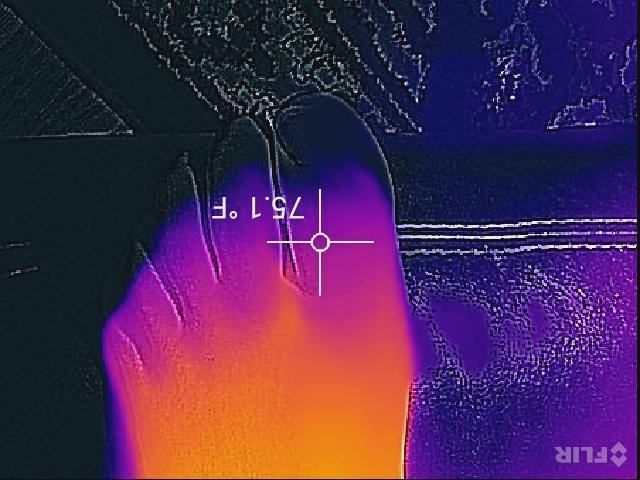
Can’t sleep, cold feet
If you are having trouble finding truly restful sleep at night, you might be surprised to find out that cold feet may be the source of your dismay. When asleep, cold feet can constrict the blood vessels, causing an imbalance in circulation overall. According to the National Sleep Foundation, when you warm up your feet there are signals sent to your brain telling it that it is time for sleep.
The best solution is actually pretty easy to do: socks. Wearing socks to bed is easily the best and safest way to warm your feet overnight. Alternative methods could potentially burn your feet in the night, such as rice socks, warm water bottles, or a heated blanket.
While wearing socks at night can help your sleep, there are other benefits to be found by adapting this habit.
Why you should sleep with socks on
Beyond keeping your body warm, wearing socks to bed also has these extra benefits:
- In some women, wearing socks can help regulate a cool body temperature and prevent hot flashes.
- Cotton socks can help moisturize cracked heels, and further prevent dry spells.
- According to the BBC, an accidental discovery was made by researchers that were studying the effects of socks on sleep: participants reported an increased ability to achieve an orgasm by 30% after altering their sleep to include wearing socks.
- Wearing socks at night can help prevent Raynaud’s disease, which is a condition that occurs when the toes and fingers begin to lose circulation and swell. Keeping your socks on can warm your feet and improve circulation.
What socks to wear
The type of socks you were can do a lot for you, or very little. Natural soft fibers such as merino wool and cashmere are the optimal choice. These often cost more than cotton or artificial fiber socks though. Make sure that when you buy socks that you don’t pairs that are too tight! The point is to improve circulation, not minimize it.
To enhance circulation
- Before getting into bed, give your feet a massage to open up those blood vessels.
- Adding natural circulatory boosters into your massage oils can help blood flow even more. One example of one such booster is capsaicin.
- If you put your socks on when they are warm you’ll notice an improvement. Try to sit on them before bed or use a hair dryer.
If at any point you are too hot in bed, you can simply take off your socks or sick your feet out from under the blanket.
Pulling up your socks
Alternative bonuses exist for wearing different types of socks. Wearing compression socks can help with swelling. Padded socks can help if your feet hurt while walking. Compression socks can be difficult to put on. Invest in a sock aid to help you out and make an easier time of it.
What Are Other Alternatives?
Sometimes socks may not be useful or maybe you don’t like wearing them. Therefore here are some of the alternatives of wearing socks so that cold feet doesn’t disturb your sleep:
1. Massage Your Feet
Allow a friend with warm hands to massage your feet to improve circulation.
You might have him/her massage each foot in turn, starting with the toes and working toward the heel, using circular movements with their fingertips and thumbs.
For added warmth, use a foot balm that contains ginger or eucalyptus oil.
2. Quit Smoking
Smoking can cause chilly feet and impaired blood circulation throughout the body.
Quitting smoking can help you maintain a healthy blood pressure and cholesterol level by lowering your blood pressure.
3. Warm Baths
Soaking your feet in a warm footbath is one of the easiest ways to treat cold feet.
To maintain fresh blood circulation to the feet throughout the day, fill a bathtub or basin with warm water and bathe the feet for 10 to 15 minutes.
This is especially beneficial right before bedtime because it relieves stress and relaxes the muscles.
Can anxiety or stress play a role in causing cold feet during sleep?
Yes, anxiety and stress can play a role in causing cold feet during sleep. When you experience anxiety or stress, your body’s natural “fight or flight” response is triggered, leading to various physiological changes, including peripheral vasoconstriction. Vasoconstriction is the narrowing of blood vessels, which reduces blood flow to the extremities, including the feet. As a result, the feet may feel colder during periods of heightened anxiety or stress.
Additionally, anxiety and stress can lead to changes in sleep patterns and quality, which may affect overall circulation and body temperature regulation, contributing to the sensation of cold feet during sleep.
It’s essential to address the underlying anxiety or stress to help alleviate cold feet during sleep. Relaxation techniques, stress management strategies, and creating a comfortable sleep environment can be beneficial in reducing both anxiety and the incidence of cold feet during sleep.
While poor circulation is one of the common causes of cold feet at night, it is not the only possible reason. There are various factors that can contribute to the sensation of cold feet during sleep. Some of the other possible reasons include:
Is poor circulation the most likely reason for cold feet at night?
- Room Temperature: Sleeping in a cold room or using thin or inadequate bedding can cause the feet to feel cold during the night.
- Sleep Position: Certain sleep positions can affect blood flow to the extremities, leading to cold feet.
- Anxiety and Stress: As mentioned earlier, anxiety and stress can cause vasoconstriction, reducing blood flow to the feet and causing them to feel cold.
- Peripheral Neuropathy: Nerve damage in the feet due to conditions like diabetes or other neurological disorders can cause cold sensations.
- Raynaud’s Phenomenon: This condition causes blood vessels in the extremities to constrict excessively in response to cold or stress, leading to cold and numb fingers and toes.
People with diabetic nerve impairment should avoid warming their feet with hot water since they may not be able to discern if the water is excessively hot or not. This can result in unintentional burns.

